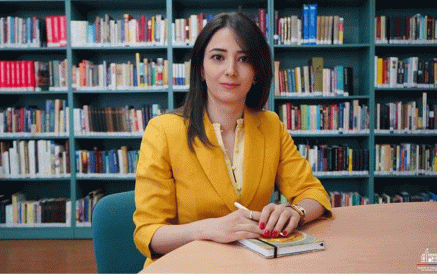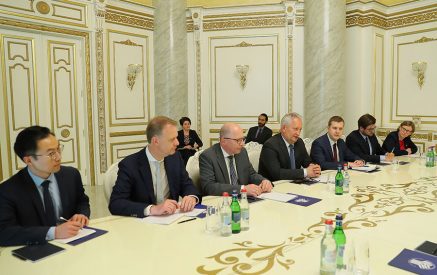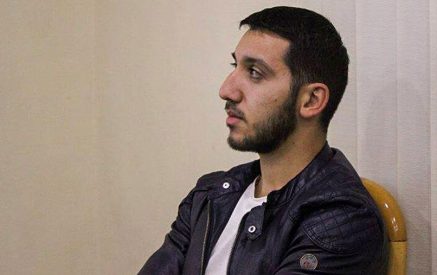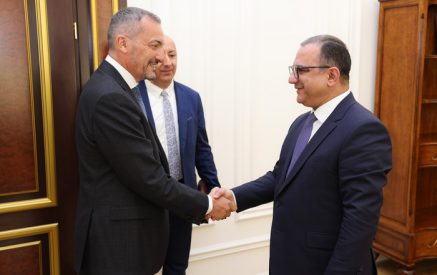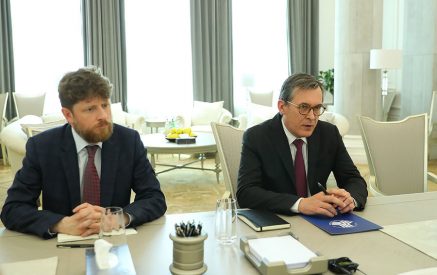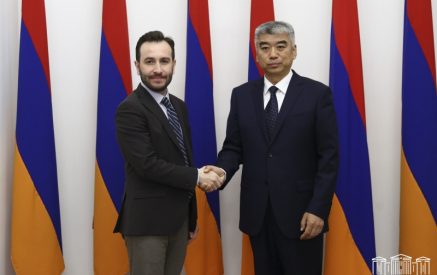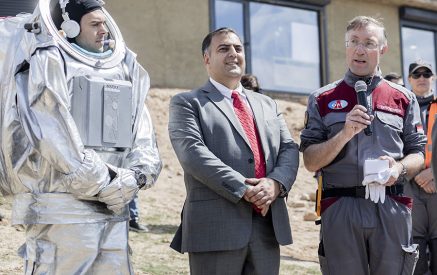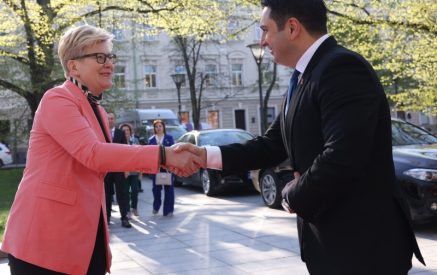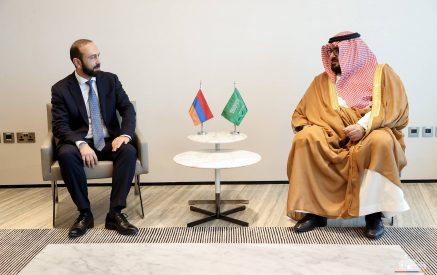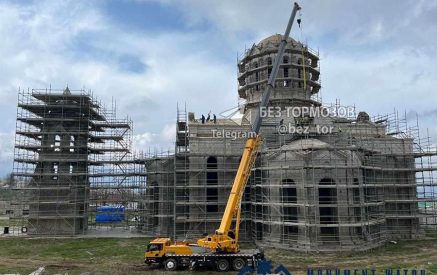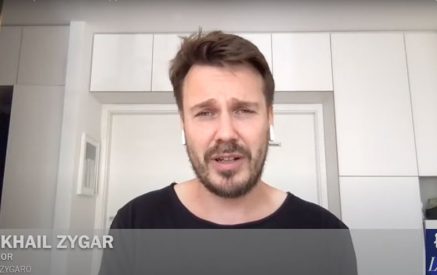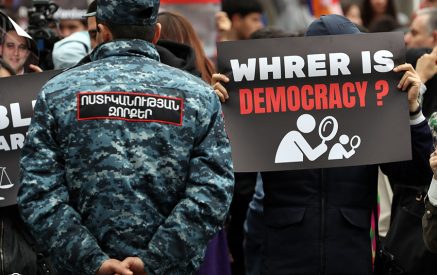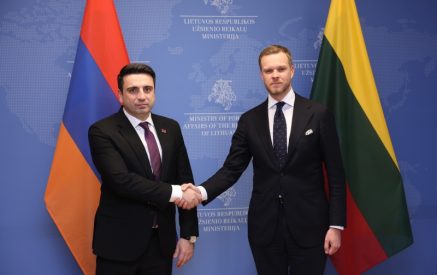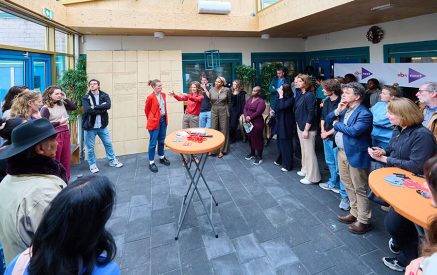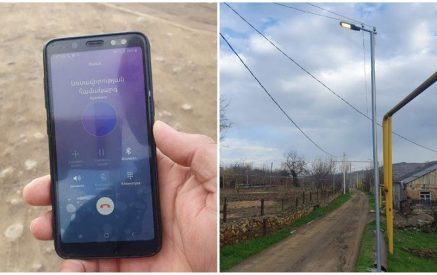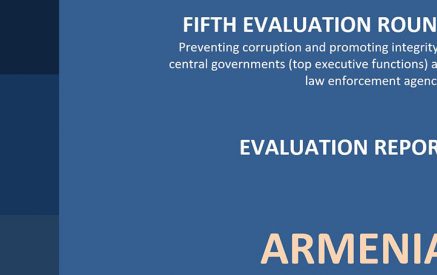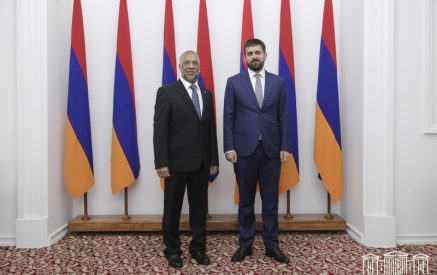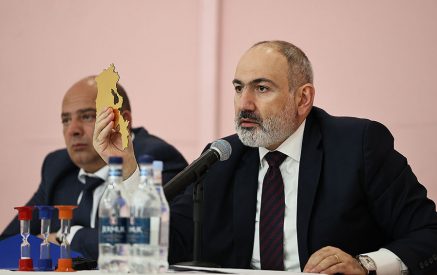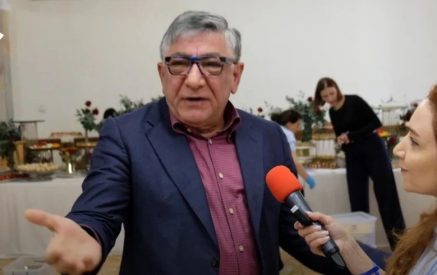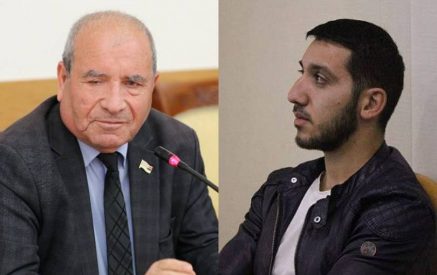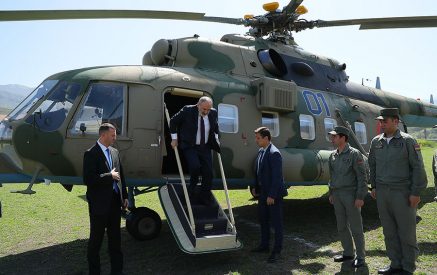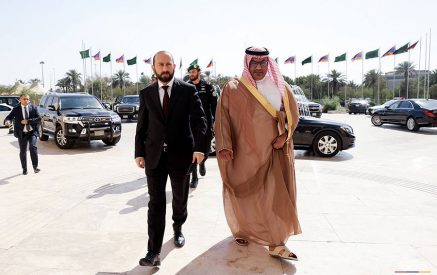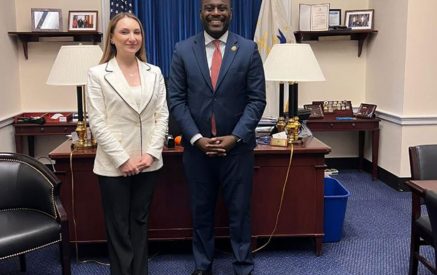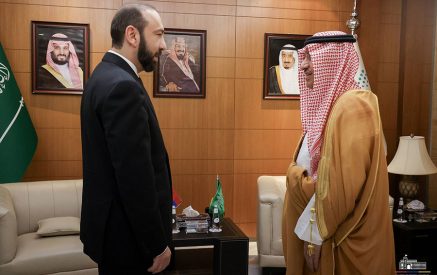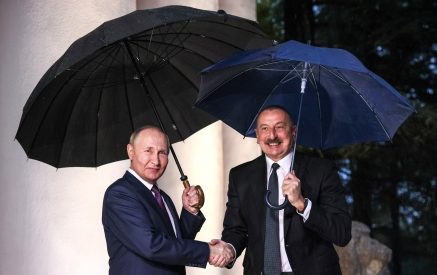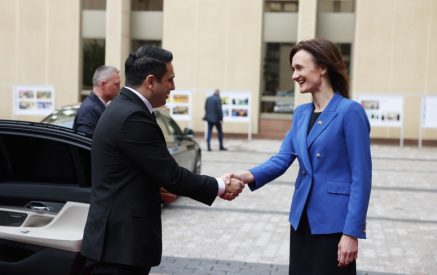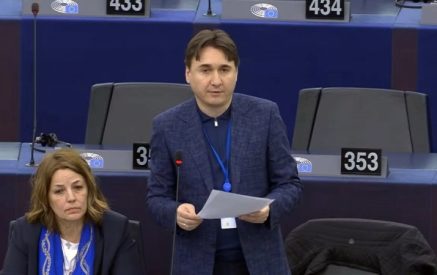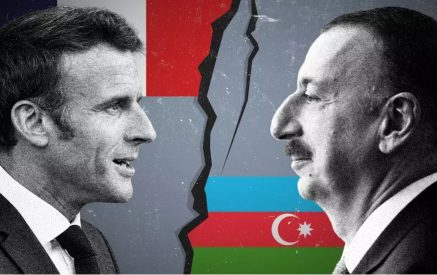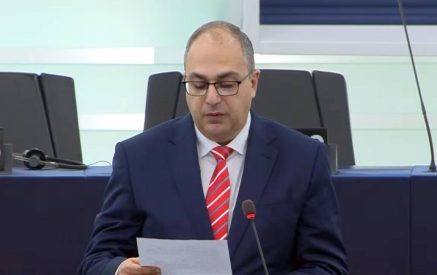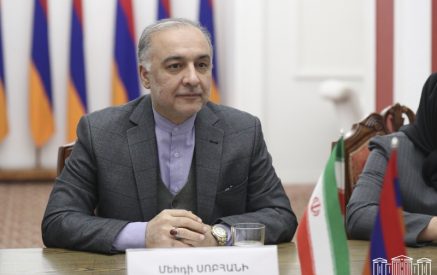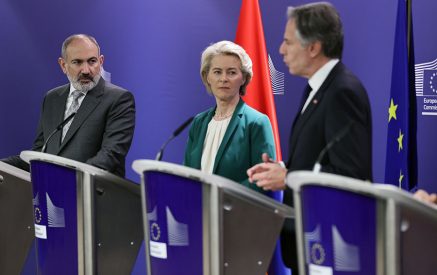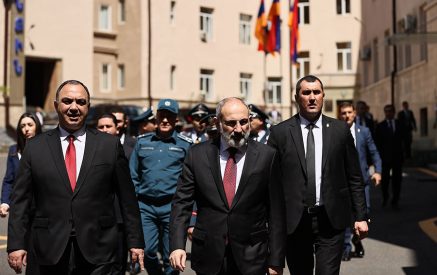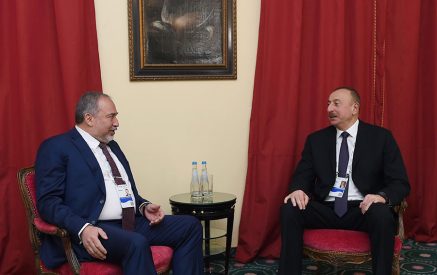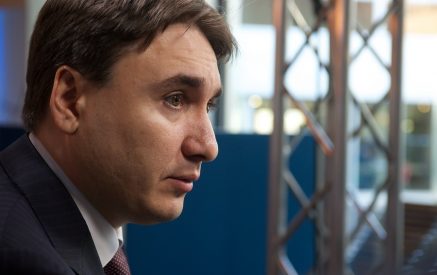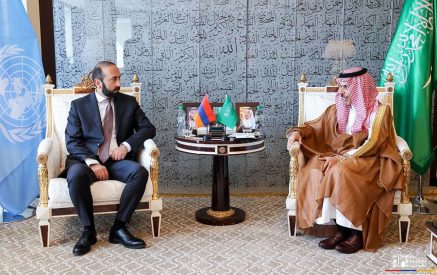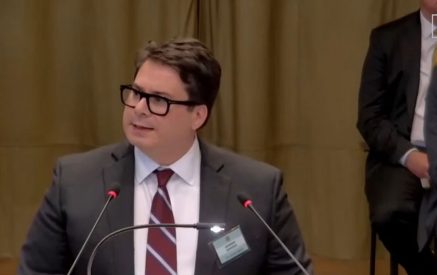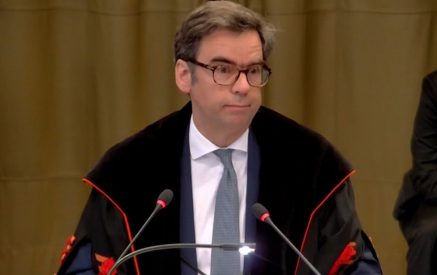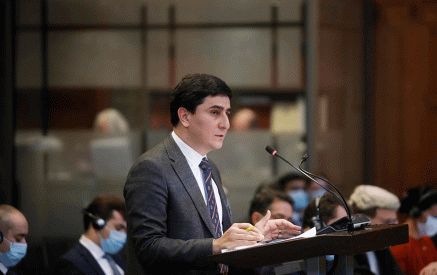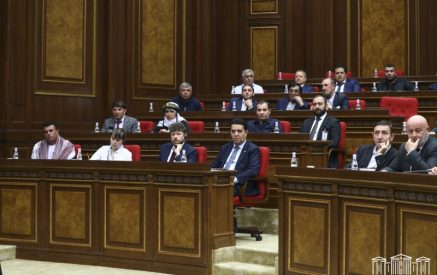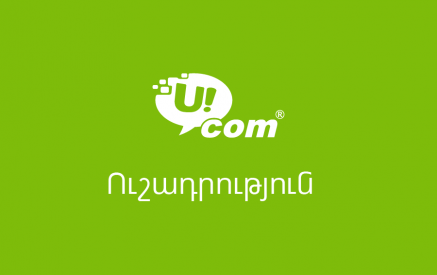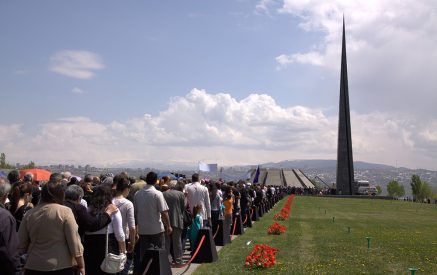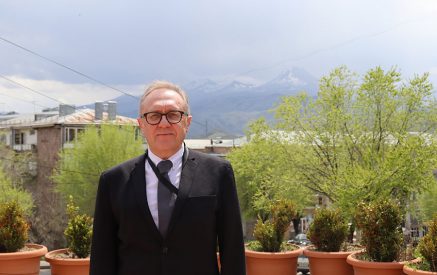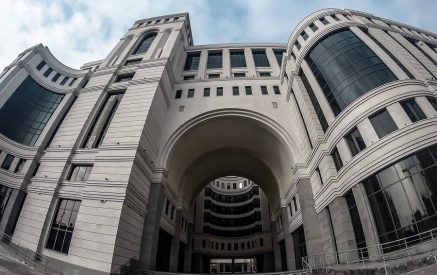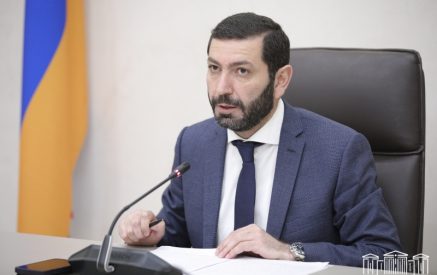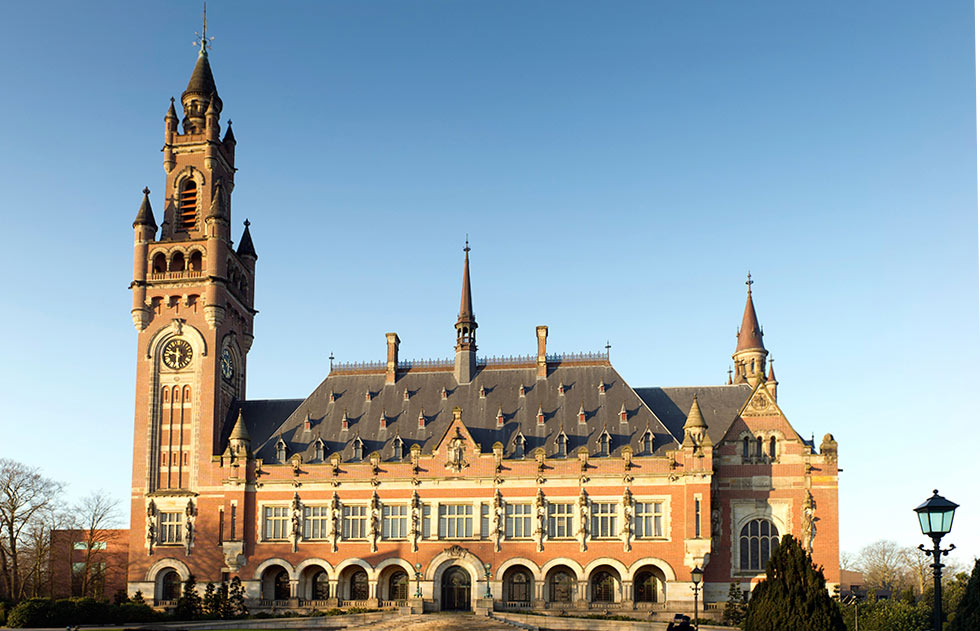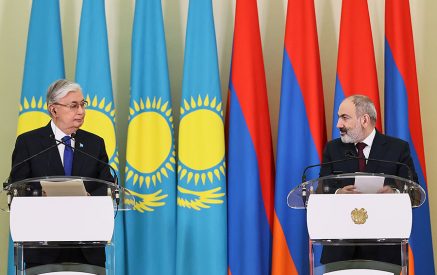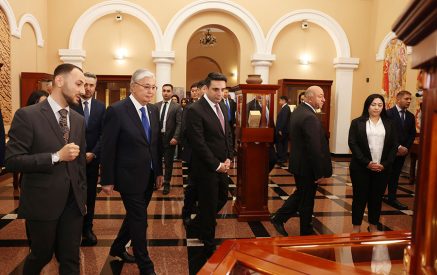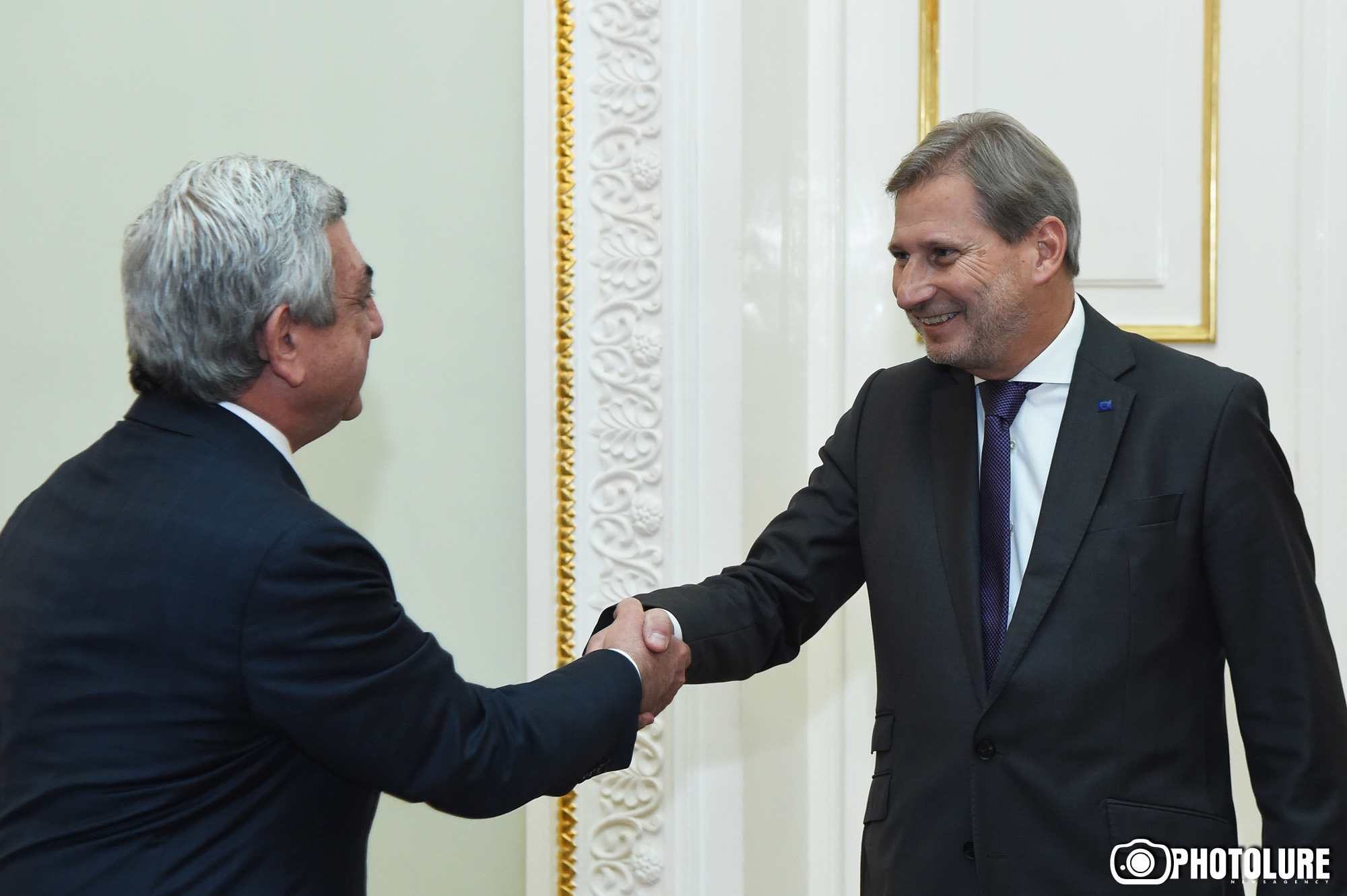Exclusive interview of European Commissioner for Enlargement and European Neighbourhood Policy, during the exclusive interview Johannes Hahn “Aravot Daily”.
– Mr. Commissioner, the Comprehensive and Enhanced Partnership Agreement between the EU and Armenia was initialled on March 21, 2017 in Yerevan. Official Yerevan is confident the CEPA will open a new page for relations between Armenia and the EU and its Member States. The new EU-Armenia agreement is expected to sign during the EU EaP summit in Brussels. First of all, what does the EU expect from the authorities of Armenian in this regard? Secondly, how will CEPA impact the welfare and life of the citizens of the Republic of Armenia, when implemented?
– What we are looking at is a modern, comprehensive and ambitious Agreement, which will cover political, economic and sectorial cooperation. It will no doubt, once in force and implemented, broaden the scope of relations between the European Union and Armenia, taking into account the new global, political and economic interests shared by both sides and the challenges we want to face together. Our current agreement – the Partnership and Cooperation Agreement – is outdated. What we will put in place is something much more fit for the relationship we have now and the relationship we want to build. Of course, the new Agreement will be underpinned by shared common values and a strong commitment to democracy, human rights and the rule of law. These will create favourable premises for stronger cooperation in sectors such as energy, transport, and the environment; for new opportunities for both sides’ trade and investment; but also for increased mobility to the benefit of our citizens.
I think it is still a little early to be saying when it will be signed, other than as soon as possible. Internally within the European Union we are undergoing the final formal approvals by our Member States, and proof-checking the various language versions to ensure consistency and the certainty of law. What is important is that the negotiations were successfully concluded, that the Agreement is a good one, which we have done, and that once it enters into force, it’s implemented fully.
– “Yes, we are going to sign it in autumn. Why I say this with such confidence because the document has already been initialled…. the document, in general, is already negotiated, and after that we have initialled it. We have no reason not to sign that document”, RA President Serzh Sargsyan said in August. The fact of Armenia’s membership in EEU is taken into account in the CEPA between Armenia and the EU. Can we state that this time Armenia’s membership to EEU will not be an impediment and that eventually the agreement will be signed in November?
– It is true that Armenia is a member of the Eurasian Economic Union. This means that Armenia has certain obligations stemming from its membership of the EEU that it needs to respect when it concludes international trade agreements. That being said, Armenia’s membership of the EEU will not impact many other areas of cooperation covered by the new agreement, for instance cooperation on a better regulatory environment for economic operators. And in any case, Armenia already benefits from the EU’s GSP+ scheme of trade preferences, which exempts from duties most of Armenia’s exports to the EU. Armenian exports to the EU grew by 12% in 2015 and by 10% in 2016. When it comes to signing the new Agreement, now that it has been initialed, we are confident that signature will follow – like I said, as soon as possible. It’s in both the European Union and Armenia’s interest for this to happen.
– Mr. Hahn, please clarify. In August, referring to Armenia-EU and Armenia-EEU relations, Serzh Sargsyan said: “Some especially foreign media attempts to present Armenia’s 2013 decision to join the Eurasian Economic Union (EAEU) as a ‘decision made at a night’ are groundless and just ridiculous. We were holding talks both with the Eurasian Economic Union and the European Union since from the very start both sides told that one would not hinder another. But when the EU said it hinders what we should do?” Has the EU demanded Armenian authorities to choice “either” agreement with the EU, “or” the EEU?
– No. The European Union doesn’t make partners choose one way or the other. We encourage good relations between our partners and their partners, in particular good neighbourly relations. However, like I said, Armenia’s membership of the Eurasian Economic Union does have an impact on the type and content of an Agreement with the European Union, due to its membership obligations. But, after Armenia’s decision not to sign the Association Agreement including the Deep and Comprehensive Free Trade Area in 2013, the new Agreement we have been working on I hope will help to firmly re-establish our relations in a positive sense.
– It is known that the European Union wants to contribute to the energy independence of Armenia. What specific programs are planned for future development of energy sector in Armenia?
– Under the new EU-Armenia Comprehensive and Enhanced Partnership Agreement and Partnership Priorities we are jointly committed to focus on a number of areas, including the energy sector. This will lead to concrete actions which will contribute to the energy security and energy efficiency of Armenia.
One of our main areas of priorities in the field of energy cooperation with Armenia is on improving energy efficiency, as the cheapest energy is the one you don’t spend. Last year I launched the High-Level Energy Efficiency Initiative which aims to move away from individual energy efficiency projects to a more comprehensive approach that supports concrete policy actions and scales up sustainable investments. My aim is to now extend this to Armenia, starting with discussions on policy and investment priorities at a workshop on 8 November, 2017.
Besides this, our EU4Energy Initiative supports energy policy reform in Armenia with detailed assessments and promoting increased use of data in policy-making. It also targets energy policy governance reform in Armenia by developing guidelines for enforcing minimum energy performance requirements and standards in buildings and energy-related products, and aims to improve the investment climate in the renewable energy sector. All of these actions will contribute to the diversification and modernisation of Armenia’s energy sector.
– It is known that the visa liberalisation is high on the EU-Armenia agenda. You said that in January of this year. “I assure you that we are very interested in improving mobility for all. From this point of view negotiations with Armenia will be really conducted. “What kind of conditions Armenia is expected to meet to that end?
And I assure you once again – helping citizens to move around Europe in a secure environment is a key component of the Eastern Partnership and an important aspect of our work with our Eastern European partners. We have a Visa Facilitation and Readmission Agreement with Armenia in place since 2014. We count on the Armenian government to continue to cooperate with EU Member States within this framework, especially on the readmission of Armenian nationals who are staying in the EU illegally. We also hope for Armenia to step up efforts and decrease the push factors driving Armenians to enter the EU in an irregular way. Only once conditions for well-managed and secure mobility are in place, visa liberalisation dialogue can be opened. The implementation of the existing agreements has been satisfactory so far and we hope to continue this fruitful cooperation.
– Did the EU revise the Eastern Partnership policy? Has it tailored the approaches? For instance, in which case can we expect the EU to invest in further economic development in the case of Armenia?
– The revised European Neighbourhood Policy is based on increasing the stabilisation and resilience of the EU’s neighbours. In line with this, the Eastern Partnership is a joint policy initiative which aims to deepen and strengthen relations between the EU, its member states and its six Eastern Partner countries: Armenia, Azerbaijan, Belarus, Georgia, Moldova and Ukraine.
The new EU-Armenia Comprehensive and Enhanced Partnership Agreement and Partnership Priorities are a direct result of differentiation in our bilateral relations based on mutual interests. Concretely, this means that a top priority will be working together in the modernisation of Armenia’s economy based on a common agenda.
Armenia has a huge economic development potential and the EU is actively supporting the build up of the country’s economic resilience. The European Union is Armenia’s largest export market. Armenia is working hard in unlocking the potential for the private sector and supporting small and medium size enterprises. The results of these joint efforts are already visible: in the last three years the SME sector generated 3500 new jobs thanks to EU support.
The business environment has also improved through the provision of effective public services. The EU has supported the launch of a number of e-government applications, which have transformed the way citizens and businesses interact with their local and national administrations.
Moving forward our pilot region approach will allow for targeted actions in the areas of innovation, tourism development and culture to the benefit of Armenian citizens living in rural areas.
– What do you expect from the EaP summit in November? What are the main issues?
– The upcoming Summit is an opportunity to build on our achievements to-date and also to inject new dynamism into our partnership. This Summit is an opportunity for us to show our collective unity, strong commitment to the Eastern Partnership and to show that we are delivering and will continue to deliver tangible results to citizens. We need to be ambitious, but also realistic and credible. The Eastern Partnership comprises a set of very different countries, in different situations, with different expectations of their relationship with the European Union. Differentiation and ownership remain pivotal in our engagement. Our bilateral relations are tailored to the ambitions and needs of individual partner countries, but there is also a clear strategic value of maintaining the inclusive framework of the Eastern Partnership, which helps to focus the attention and resources, and encourages cooperation within this region to tackle common challenges.
At the Summit in November we should focus on the issues that we can advance in together, not those that are divisive. To really focus on what we can collectively deliver, we have developed a vision of “20 deliverables for 2020”, which will bring results across each of the four priority areas identified at the last Summit in Riga: strengthening institutions and good governance; mobility and contacts between people; market opportunities; and inter-connectivity. I will not spoil the surprises, but I think it is fair to say that we are really making progress in all of these areas. Again, the Summit is an opportunity for all of us – as the European Union and as its Eastern Partners – to demonstrate the relevance and the benefits of our common work, for the people who matter – our citizens, that we are stronger together.
EMMA GABRIELYAN

